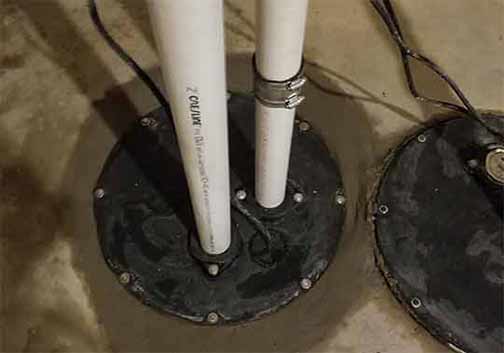
A failed ejector pump is one of the nastiest plumbing emergencies in the home. This problem not only has the potential to upset your family’s daily routine and prevent normal use of your plumbing fixtures, but the financial cost of a failed ejector pump can be significant, warns Keyrenter Richmond management.
Ejector pumps are necessary in homes where some plumbing fixtures are below the level of the city sewer line in the street. Due to the plumbing fixtures being at a lower level, wastewater cannot flow from the drains into the sewer line by the force of gravity alone.
To move wastewater out of the drains into the septic system or the city sewer lines, an ejector pump is needed to push the waste to a higher level from where it can flow into the main sewer line. That makes the ejector pump a vital component of the home’s plumbing system.
That is why problems in your ejector pump are stressful for the home occupants, and they can expose your building’s critical structures to danger. Is there a way to know when your ejector pump is about to fail? The answer is YES, and this post explains how.
Signs that your ejector pump is failing
Frequent drain clogs
This is the number one sign that your ejector pump is about to fail. Since the ejector pump transports wastewater from the home’s drains into the sewer line, when the ejector pump malfunctions, it will affect the performance of your drains. Check how many drains are affected to know if the drain problem is from the ejector pump. If only one drain is clogged, the problem is from that particular drain. However, if more than one drain is clogged at the same time, you may want to check your ejector pump.
Multiple slow drains
This is similar to the previous problems. But instead of being blocked completely, the drains are slow. That is, water flows from the drain but takes longer than usual. This problem will cause water to collect inside the shower or sink. Slow drains are a huge menace because they transform basic tasks into painful chores. If the problem is present in only one drain in the home, it can be solved by unclogging the pipe connected to that fixture. If the problem affects more than one drain at a time, it is most likely an ejector pump issue.
Foul odors inside the home
Foul odors will enter your home from the pump basin if the ejector pump is not working as it should. Foul odors from your ejector pump happen because of the buildup of wastewater and sewage inside the pit. That will only happen if the ejector pump is not pumping efficiently or has stopped working. If an ejector pump is functional, wastewater and sewage cannot collect inside the pit, and there will be no foul odors inside the home.
The pump is acting weird
One of the clearest signs that your ejector pump is on the verge of failing is when it starts making strange noises. It is normal for an ejector pump to emit a low humming sound when it is working. But when you hear rattling, clanging and grinding noises, that signifies looming trouble. Another sign that your ejector pump is about to fail is when it cycles frequently. You should be worried if the intervals between when the pump starts and stops are getting shorter.
What to do if your ejector pump is about to fail
Adequate maintenance, done regularly, is the only way to prevent ejector pump failure. All the above signs result from one type of ejector pump problem or another. But all of them can be solved and prevented by doing proper maintenance.
To keep your ejector pump in top shape, you need to make the following steps an essential part of your home’s plumbing maintenance routine:
Test the pump periodically
Unless you test your ejector pump regularly, you will have no way of knowing when there are problems in the system. Check the function and condition of the pump. Also, check the electrical connections and power breaker.
Regular cleaning and servicing
The ejector pump should be cleaned at regular intervals. Because it handles waste matter, the ejector pumps are highly highly vulnerable to blockages. Clogs and debris are the leading cause of ejector pump failure, but thorough cleaning will solve this problem.
To ensure that the ejector pump is properly maintained, it is essential to get a professional plumber to inspect and clean it at least once a year. Doing this will protect your home from water damage, and you will also be saving yourself a lot of money and stress.


